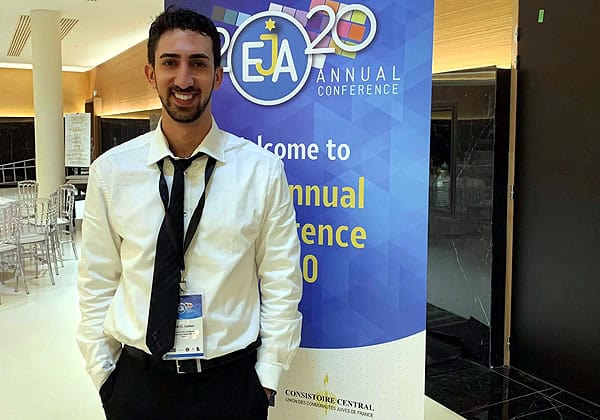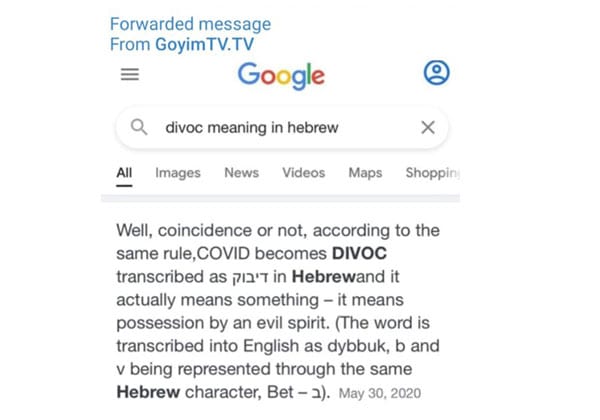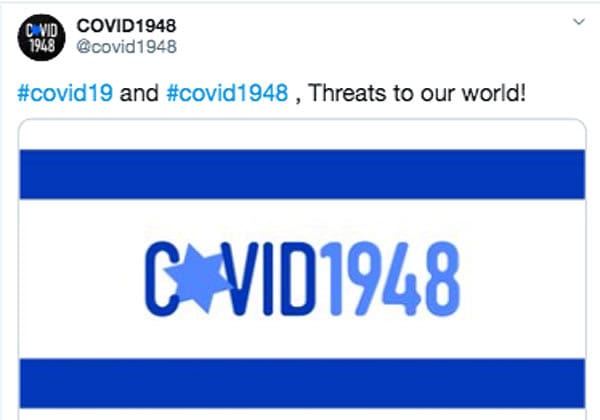Fighting Online Antisemitism organization has been working to reduce hateful speech on social media—with partial success. To improve effectiveness, FOA plans to develop an AI system capable of continuously monitoring antisemitic content. To achieve this goal, FOA is asking for donations. As FOA CEO Tomer Aldubi explains, “For social media platforms to remove more antisemitic content, they must see we’re here, actively fighting against this hateful discourse.”
Hate speech on social media has been a discussed topic ever since its appearance, particularly on first-generation platforms like Facebook and Twitter, which remain dominant today, and newer platforms like Instagram and TikTok. Some argue these networks indirectly encourage hate speech because controversial content increases engagement and advertising revenue.
Similar to the physical world, one favored target for haters and racists online remains the Jewish community. Antisemitic discourse thrives on social media, sometimes masked by criticism of Israel’s actions, but often drawing on classical antisemitic stereotypes portraying Jews as villains seeking global dominance.
Online antisemitism intensifies during current events involving Jewish communities. Tomer Aldubi highlighted this in an interview with “People and Computers,” citing clear spikes during the global COVID-19 pandemic and even the Mount Meron disaster. Although the Mount Meron tragedy was local, antisemites exploited it to spread hatred online, indifferent to the 45 fatalities, including children.
How is antisemitism expressed on social media during COVID-19? “It divides into two categories: classical antisemitism, amplified by the pandemic, and new conspiracy theories using COVID-19 as a pretext. Jew-haters blame Jews for everything from alleged 5G radiation dangers to inventing the virus itself. They are uninterested in facts.”
What specific conspiracy theories emerged? “There are several, mainly asserting Jews created COVID-19 to control the world. Theories exploit Pfizer CEO Albert Bourla’s Jewish identity, claiming Jews withheld vaccines to profit by selling them at high prices. Others claim Israel overcame COVID-19 first because Jews had special vaccine access, aligning with traditional antisemitic stereotypes about Jewish greed.”

FOA’s founder and CEO, Tomer Aldubi, is 28 and from Ramat Gan. Besides leading FOA, he is also a journalist for Mako Geava, Keshet 12’s LGBTQ+ section. Despite having a Bachelor’s degree in theater arts from Tel Aviv University, Aldubi became deeply involved in combating antisemitism during his student days. “I led a student union program initiated by Itzik Shmuli. When it ended, I promised myself its achievements wouldn’t vanish. My friend Nir Kaplan helped me navigate the bureaucracy, and after eight months, we launched FOA as a fully volunteer-based association. Today, we offer modest salaries for management roles.”
Founded in February 2018, FOA quickly attracted dozens of volunteers from Israel and abroad—Jews, non-Jews, Israeli Arabs, youth, and adults. Many volunteers are students fulfilling community service requirements or earning university credits.
FOA monitors antisemitic and other hateful content on platforms including Instagram, Facebook, Twitter, YouTube, TikTok, and Telegram, in languages like English, Arabic, Russian, Spanish, and German—but not Hebrew, as FOA does not monitor Israeli networks. FOA actively cooperates with social networks, albeit with varying success.
FOA also trains volunteers in recognizing and addressing antisemitic content, especially when dealing with ambiguous cases. All activities are voluntary, with FOA collaborating closely with Jewish organizations, government ministries, and academic institutions.
FOA is the only Israeli organization represented in the International Network Against Cyber Hate (INACH).

The association’s founder and CEO Tomer Aldubi is 28 years old from Ramat Gan. He wears several hats, including one as a journalist at Mako Geava – the LGBT part of the site Keshet 12. Aldubi’s education is not in the field of FOA at all. He has a Bachelor’s degree in theater art from Tel Aviv University.
Aldubi came to the fight against antisemitism on social media during his time as a student: “I ran a program on the subject of the student union which Itzik Shmuli established when he was chairman of the association. When the program closed, I vowed that its achievements would not go down the drain. I did not know how to set up an association and my friend Nir Kaplan helped me. After eight months of bureaucratic procedures, finding a name and formulating a vision, we founded the fully voluntary association, FOA. Today, we have the ability to give limited salaries to the management team.”
The Fighting Online Antisemitism (FOA) association was founded a little over a year ago in February 2018. Dozens of volunteers joined, from Israel and abroad, adults and youth, Jews and non-Jews, including Israeli Arabs. Some of the FOA volunteers are school students as part of their school’s “giving back to society” and university students who receive degree eligibility points for their volunteer hours.
The FOA monitors antisemitism and also hate posts of other types on the major social networks – Instagram, Facebook, Twitter, YouTube, Tiktok and Telegram. The monitoring is carried out in a variety of languages including English, Arabic, Russian, Spanish, German , but not in Hebrew. The association does not monitor the Israeli network. FOA cooperates as much as possible with the social networks. It does not always succeed, to say the least.
Another of FOA’s activities is running courses that train volunteers how to monitor and work to remove such content. The courses include teaching attendes how to distinguish between antisemitic and non-antisemitic content, especially in the gray area. All activities are carried out voluntarily, and the association cooperates with various bodies, including Jewish organizations, government ministries and academic institutions.
The FOA is the only Israeli association represented in International Network Against Cyber Hate (INACH).
What do you define as antisemitism? There are those who also define criticism of Israel as antisemitism.
“Our definition follows the International Holocaust Remembrance Alliance (IHRA). Unfortunately, social networks have yet to adopt this definition. We’re pushing for its adoption, but progress is slow. Additionally, calls for boycotts or erasure of Israel, comparing IDF soldiers to Nazis, or equating events in the West Bank and Gaza to the Holocaust clearly constitute antisemitism.”

How can I, as a user, remove antisemitic content?
“Report it immediately. Reporting is anonymous and helps encourage further reporting. If your report isn’t effective, contact FOA directly—we have direct communication with all major platforms, excluding Telegram.”
Are social networks doing enough to fight antisemitism and hate speech?
“No. Platforms claim they remove a significant amount of hate content, but our data shows only about 20% of our reported content is removed. Furthermore, platforms neglect other hate speech, such as anti-LGBTQ+ content.”
Why are they not doing enough?
“The primary issue is insufficient external pressure for policy change.”
Is profit a reason why the social networks are reluctant to change?
“I don’t believe so. They risk losing many users who oppose antisemitism. They have the resources and technology to act more decisively, but pressure from media and the public must be stronger for real change.”

FOA urgently needs donations to enhance its capabilities. Contributions from entities like Google and Twitter support FOA’s efforts to build an AI algorithm, enabling 24/7 monitoring to replace manual reporting. Aldubi stresses, “With an AI tool alongside our volunteers, we could achieve extraordinary results. Your donations matter because no one else approaches online antisemitism the way we do. Clearing antisemitism from the internet is possible—but only with your support.”
